
EDC News 2018/2017
NEWS 2018
Invited presentation: University of Victoria, Melbourne
Dr Paul Downes, Director, Educational Disadvantage Centre, Associate Professor of Education (Psychology), gave an invited presentation, Reducing Early School Leaving: The Role of Universities at the University of Victoria, Melbourne, Australia, Public Forum on this theme, organised by the university’s Centre for International Research on Education Systems (CIRES) on November 8th 2018. The presentation was based on the 12 country study of his book, Access to Education in Europe: A Framework and Agenda for System Change (Springer 2014) and the recent report he led, published by the EU Commission, Structural Indicators for Inclusive Systems in Europe (Downes, Nairz-Wirth and Rusinaite 2017). Dr Downes' presentation Reducing early school leaving: The role of Universities can be accessed HERE

The Panel in response to his presentation was composed of Professor Peter Dawkins, AO, President and Vice-Chancellor, Victoria University, Jayne Johnston, former Director Australian Curriculum Assessment and Reporting Authority and Professor Richard Teese, Adjunct Professor of Education, Victoria University. The moderator of the event was Professor Peter Noonan, Professor of Tertiary Education Policy, Victoria University and the event was hosted by Professor Stephen Lamb, Director, CIRES.

Invited presentation: Dublin City South Area Children and Young Person’s Services Committee Event
Paul Downes also gave an invited presentation, Harnessing the Multidimensional Strengths of Interagency Working across Education, Health and Social Sectors: Key Issues to Consider at the Dublin City South Area Children and Young Person’s Services Committee Event, at Richmond Barracks, Inchicore, Dublin on November 14th 2018. Dr Downes' presentation can be accessed HERE
INTERNATIONAL JOURNAL OF EMOTIONAL EDUCATION
RECONCEPTUALISING SYSTEM TRANSITIONS FOR MARGINALISED GROUPS
The European Journal of Education, Special Issue, Reconceptualising System Transitions in Education for Marginalised and Vulnerable Groups, Edited by Dr. Paul Downes, Associate Professor of Education, Director, Educational Disadvantage Centre, Institute of Education, DCU, Professor Erna Nairz-Wirth, Head of the Education Sciences Group, Vienna University for Economics and Business and Professor Jim Anderson, Dept. of Language and Literacy Education, University of British Columbia, Canada has just been published: https://onlinelibrary.wiley.com/toc/14653435/2018/53/4
The special issue includes articles by:
- Professor Guofang Li, Canada Research Chair in Transnational/Global Perspectives of Language and Literacy Education of Children and Youth, University of British Columbia,
-Dr. Mariana Souto-Manning, Associate Professor of Education, Teachers College, Columbia University, USA
-Professor Diane Reay, University of Cambridge
- Dr. Charo Reyes Izquierdo & Professor Silvia Carrasco Pons, Department of Social and Cultural Anthropology, Universitat Autònoma de Barcelona
-Professor Maurice Crul, Vrije Universiteit Amsterdam and the Erasmus University Rotterdam
- Professor Donna Cross, Foundation Professor of Child and Adolescent Health, Edith Cowan University's Child Health Promotion Research Centre, Western Australia
Emphasising a critical and interdisciplinary approach to transitions internationally, the editorial and concluding articles to the special issue are as follows:
Downes, P., Nairz-Wirth E., Anderson, J. (2018). Editorial: Reconceptualising system transitions in education for marginalised and vulnerable groups. European Journal of Education, 53, 441-446.
Downes, P., Anderson, J., Nairz-Wirth E. (2018). Conclusion: Developing conceptual understandings of transitions and policy implications. European Journal of Education, 53, 541-556
eTWINNING CONFERENCE PROCEEDINGS PUBLISHED
Following the international conference hosted by the Italian eTwinning National Support Service (NSS) “Empowering eTwinning Schools- leading, learning, sharing” for 250 school leaders across Europe in May 2018, Dr Downes’ presentation, entitled Developing a whole school approach for promoting inclusive systems in and around schools: Some issues for eTwinning? can be found on page 21of the Conference Proceedings HERE
In October 2018, the Educational Disadvantage Centre, Institute of Education, hosted a visit from a group of French secondary school principals from Zone d’Éducation Prioritaire schools in areas of high poverty in Paris. Their visit was to investigate aspects of school climate in Irish DEIS schools and its role in early school leaving prevention.
The Educational Disadvantage Centre arranged for the principals to visit a number of sites. These included 5 DEIS schools in Ballymun, Ballyfermot, Cabra, Kilbarrack and South West Inner City Dublin, Cabra School Completion Programme, Familibase Community Based Multidisciplinary Team, Ballyfermot, as well as with senior officials from the Department of Education and Skills Social Inclusion Section and Tusla, Child and Family Agency. The principals also met with the Dean of the Institute of Education, Dr Anne Looney.
The principals gave a presentation to the 4th year B.Ed students during their lecture course on Poverty and Social Inclusion. In this the principals highlighted key strengths in the French system, strengths which require development for the Irish system. These include hot meals for all students and at nominal charge for students experiencing poverty, and nurses onsite in all schools in France, both primary and post-primary, as part of multidisciplinary team working and as support for students’ physical and emotional welfare.
A report will be presented by the principals to the French Education Ministry to highlight key issues for development in the French system with regard to early school leaving prevention, based on learning from the Irish examples and contexts from their visit.

Stephane Cortes, Arnaud Trappiez, Gautier Scheifler and Cecile Chartoire-Thibaudin Cecile pictured with Paul Downes
INTERNATIONAL KEYNOTE PRESENTATIONS ON MENTAL HEALTH AND WELLBEING
Dr Paul Downes, Associate Professor of Education (Psychology), Director of Educational Disadvantage Centre gave two recent international conference keynote presentations on the themes of mental health and wellbeing in schools. He gave the opening keynote presentation at the Austrian Ministry of Education and Science Conference, Psychosocial Health as a Key Factor for Successful Educational Pathways: Contributions of Biopsychosocial Support Systems Against Violence and Early School Leaving, October 1st and 2nd 2018. His presentation was entitled, The Neglected Shadow of Emotions and Mental Health Supports for Engaging the Needs of all Students. The other keynote presentation was given by Professor Wassilis Kassis, Research Chair in Teaching and Learning Processes, Zurich University of Teacher Education. At the Austrian Education and Science Ministry conference, Dr Downes also led a 2 hour workshop on multidisciplinary team working, with school psychologists, youth coaches, educational advisors and Senior Ministry officials. This strategic work on integrating combined system supports for early school leaving and school violence prevention, together with mental health supports, builds on his advisory work for the Austrian Ministry of Education and Science on these themes influencing their strategies in the past few years.
Dr Downes also gave the keynote presentation, Beyond interagency working to developing multidisciplinary teams in and around schools: Key issues for system development, at the University of Warsaw, Poland, Faculty of Education International Conference, Supporting the Wellbeing of Children and Youth – Interdisciplinary Perspectives, 13th – 15th September 2018.
JOURNAL ARTICLE JUST PUBLISHED. Child indicators research

Downes, P. (2018) An Emerging Paradigm of Structural Indicators to Examine System Supports for Children’s and Adolescents’ Education and Wellbeing. Child Indicators Research. October Volume 11, Issue 5, 1445–1464
Click HERE for free offprint available for 4 weeks
DCU Associate Professor helps shape key EU doc on education
One of the most influential EU documents in education, Key Competences for Lifelong Learning, has been significantly revised to include ‘Personal, Social and Learning to Learn Competence’. The revision is on foot of specific recommendations made in two reports published by the European Commission* co-authored by DCU Associate Professor of Education (Psychology), Dr Paul Downes.
Previously termed the ‘Learning to Learn’ Competence, the ‘Personal, Social and Learning to Learn’ Competence has incorporated the importance of social and emotional education. The new competence has recently been adopted by the EU Council of Ministers.
In their cited reports, Dr Downes and his co-authors had highlighted the key role of social and emotional education in developing higher academic achievement, positive academic attitudes, increased prosocial behaviour, and in leading to a decrease in antisocial behaviour, anxiety, depression, substance abuse and suicide.
Commenting on the development, Dr Downes said “This revision of the highly-influential EU Key Competences framework to prioritise social and emotional education through explicit commitment to personal and social competences is to be greatly welcomed. To progress from being an EU Commission proposal to formal adoption by the EU Council of Ministers is hugely significant.”
Regarding its relevance for Ireland, Dr Downes added: “This increased European Union emphasis on personal and social education invites giving further emphasis and time to such issues on the primary school curriculum. It also implies a stronger emphasis on teachers’ own personal and social education competences in their communication and relational styles in the classroom – for example, at post-primary level.”
*1. -Downes, P. & Cefai, C. (2016). How to tackle bullying and prevent school violence in Europe: Evidence and practices for strategies for inclusive and safe schools. Luxembourg: Publications Office of the European Union/EU bookshop; and
2. -Cefai, C., Bartolo P. A., Cavioni. V., Downes, P. (2018). Strengthening Social and Emotional Education as a core curricular area across the EU: A review of the international evidence. Luxembourg: Publications Office of the European Union.
Links:
Adopted EU Council Recommendation:
http://data.consilium.europa.eu/doc/document/ST-8299-2018-INIT/en/pdf
STUDENT NATIONAL WELLBEING PLAN ‘RISKS BEING STICKING PLASTER’
Irish Examiner Tuesday August 7th 2018
A new policy to deal with mental health issues in schools risks being a sticking-plaster solution unless therapists are put in place, a leading educationalist has said. Dublin City University associate professor of education (psychology) Paul Downes described the Department of Education wellbeing policy for 2018 to 2023 as being largely a repackaging of policy operating in second-level schools for the past decade. Published recently by Education Minister Richard Bruton, the policy sets out how schools should provide for general wellbeing of pupils, as well as dealing with issues arising as young people face mental health challenges.
Prof Downes said that the expectation that schools would have sensory gardens and safe rooms or other spaces for distressed or anxious students is an important development for schools’ physical infrastructure, writes Niall Murray. READ MORE

'HOME WORKS: A STUDY ON CHILDREN EXPERIENCING HOMELESSNESS AND LIVING IN EMERGENCY ACCOMMODATION'
A study authored by Educational Disadvantage Centre, DCU members, Dr Ger Scanlon and Gráinne McKenna on the educational needs of homeless children, Home Works: A Study on Children Experiencing Homelessness and Living in Emergency Accommodation was launched at Wood Quay Venue, Dublin City Council Civic Offices, Wood Quay, Dublin 8 on Tuesday July 3rd 2018.
Pictured Noel Kelly, Tusla; Maeve McCafferty, INTO; Tanya Ward, CRA; report authors Gráinne McKenna and Ger Scanlon, EDC, DCU and Dublin's Lord Mayor Nial Ring
The complete report can be accessed here
Executive Summary can be accessed here
Media response to Homelessness report
HOMELESS CHILDREN IN EDUCATION: 'SHE IS VERY TIRED IN SCHOOL, EXHAUSTED, I WOULD BE TOO IF I HAD TO TRAVEL'
The Journal.ie, Tuesday July 3rd 2018
A new report by the Children’s Rights Alliance looks at the impact of homelessness on children’s education. READ MORE
HOMELESS SCHOOLCHILDREN 'HUNGRY, TIRED AND ASHAMED' - STUDY
RTE.ie Tuesday July 3rd 2018
The report found that the difficulties were most acute for families living in private emergency accommodation such as hotels. That is according to a study by the Children's Rights Alliance, which has found that all this is damaging their participation and engagement with education, writes Emma O’Kelly, Education Correspondent. READ MORE
'LOST GENERATION' LOSING THEIR CHILDHOODS IN EMERGENCY ACCOMMODATION - REPORT
Irish Examiner, Tuesday July 3rd 2018
Anxious, angry, withdrawn, with some going back to wetting the bed - a new report has warned that Ireland could have a "lost generation" of children whose educational needs and overall well-being are being undermined by homelessness, writes Noel Baker, Senior Reporter and Social Affairs Correspondent. READ MORE
EPALE e platform for Adult learning in Europe
DCU-INSPIRED SCHOOL SELF-EVALUATION TOOL TRANSLATED BY EU COMMISSION INTO 22 LANGUAGES
A self-evaluation tool for school heads, teachers, parents, other school partners and policy makers – inspired by a DCU-led report – has been officially translated by the European Commission into 22 European languages.
The Structural Indicators Tool was developed based on a 2017 report* led by Dr Paul Downes, Director of DCU Educational Disadvantage Centre.
The Tool enables individual school communities to reflect on the inclusiveness of their school, and covers:
A whole school approach to developing inclusive systems
Teacher and school leadership quality
Promotion of system integration of policy and practice
A multidisciplinary focus on health and welfare
Promoting parental involvement and family support
Meeting the needs of particularly vulnerable individuals and groups
Welcoming the news, Dr Downes said “I’m delighted to see this resource now available in 22 languages. It demonstrates an institutional commitment by the European Commission to prioritising the social inclusion agenda.”
The translations have been jointly published on the EU Commission’s School Education Gateway (https://www.schooleducationgateway.eu) and DCU Educational Disadvantage Centre websites (https://www.dcu.ie/edc/structural-indicators-inclusive-systems-europe.shtml).
NEW NATIONAL CHILDREN IN CARE AND THE EDUCATION SYSTEM WORKING GROUP

Dr Paul Downes, Director of DCU Educational Disadvantage Centre, Anne McCloskey Principal Our Lady of the Wayside, Bluebell and Professor Aislinn O’Donnell, Maynooth University have led the establishment of a new national policy and research Working Group to develop the education system in order to meet the needs of Children and Young People in Care.
The Educational Disadvantage Centre, DCU has hosted the initial meetings of the network in the Institute of Education, St. Patrick’s Campus, Drumcondra. The network membership includes representatives from the Irish National Teachers Organisation (INTO), IMPACT, Children's Rights Alliance, National Parent's Council Primary and Early Years, Empowering People in Care (EPIC), Irish Foster Care Association (IFCA), Careleavers Network, Maynooth University, Dublin City University and Maynooth Access Services.
Wayne Dignam, Chairperson of the Care Leavers Network Ireland is presenting a written and oral submission on children in state care and care leavers to the Joint Oireachtas Committee (Irish Parliament and State) on Education and Skills by the Care Leavers' Network Ireland, entitled 'Barriers to Education Facing Vulnerable Groups' on May 29th, 2018.
EUROPEAN COMMISSION REPORT, EUROPEAN IDEAS FOR BETTER LEARNING
The European Commission Report, European Ideas for Better Learning: The Governance of School Education Systems was launched in Brussels on 17-18 May at the final conference of the ET2020 Working Group Schools (2016-18). This report encompasses four thematic reports on:
- Quality assurance for school development
- Continuity and transitions in learner development
- Teachers and schools leaders in schools as learning organisations
- Networks for learning and development across school education
A number of reports led by Dr. Paul Downes, Director of DCU’s Educational Disadvantage Centre, Associate Professor of Education (Psychology) were cited in this report, on the issues of multidisciplinary themes in and around schools, on inclusive systems, and on school bullying and violence. The conference keynote was given by Professor Andy Hargreaves, Boston University. The invited attendees from Ireland were Suzanne Conneely, Assistant Chief Inspector, DES; Tomás Ó Ruairc, Director of the Teaching Council; John Halbert, Acting Deputy Chief Executive NCCA; Professor Gerry MacRuairc, NUI Galway and Paul Downes. The Report is to inform the strategic thinking of senior officials across Education Ministries in Europe, including those who participated as members of the Commission’s School Policy Working Group on these themes.
SPECIALIST THERAPISTS IN SCHOOLS AND PRESCHOOLS
A notable step towards multidisciplinary teams in and around schools has been made by the recent government decision to provide school-site based and preschool site based speech and language therapists and occupational therapists. As a first step, 19 speech and language therapists and 12 Occupational Therapists will be recruited to work with 150 schools and pre-schools. €2.25m is being allocated to Phase One of the project in 2018.
Two policy briefing papers of DCU's Educational Disadvantage Centre in 2016 specifically argued for such policy developments, both for speech and language therapists in schools and for occupational therapists.
The Conference Proceedings of the Joint INTO/Educational Disadvantage Centre DEIS Review Conference held in DCU December 2015 similarly emphasised the policy importance of such specialist multidisciplinary team services to be located in schools, to bridge the divide between health and education. READ MORE
INTERNATIONAL KEYNOTE PRESENTATIONS ON INCLUSIVE SYSTEMS IN EDUCATION



Dr Paul Downes, Director of the Educational Disadvantage Centre, Associate Professor of Education (Psychology), DCU Institute of Education recently gave two international keynote conference presentations on the area of social inclusion in education. At the international conference “Empowering eTwinning Schools- leading, learning, sharing” for 250 school leaders across Europe, his presentation was entitled, Developing a whole school approach for promoting inclusive systems in and around schools: Some issues for eTwinning? Hosted by the Italian eTwinning National Support Service (NSS), the Conference was organised in collaboration with the European Commission, the eTwinning Central Support Service (CSS), EACEA, and the Italian National Agency Erasmus+/INDIRE at the Centro Congressi Trevi, Rome, from 14 to 16 May 2018.
Paul Downes article, Developing a whole school approach for promoting inclusive systems in and around schools: some issues for eTwinning? can be found on page 21 of the Conference Proceedings HERE
Cécile Leclerq, from the European Commission and Carmela Palumbo, Head of Department, Italian Ministry of Education opened the conference. Dr. Downes argued for the need to create relational spaces that shift communication and power relations at school system levels, to include the voices and experiences of marginalised students and parents. He distinguished where eTwinning can and cannot play a role in this process, with a particular focus on early school leaving and bullying prevention.
Dr Downes gave the opening keynote presentation, at the EMPAQT International Conference, "Policies and Practices for the Prevention of Early School Leaving" Maltepe University, Istanbul, May 3-5. This was the first international conference in Turkey, specifically focusing on the theme of early school leaving prevention. His presentation, From Early School Leaving Prevention to Promoting Inclusive Systems of Concentric Spatial Relations of Assumed Connection argued for the need to challenge diametric spatial systems of exclusion, opposition and hierarchy and to develop specific concentric spatial systems of inclusion in education, building on the cross-cultural work of Claude Lévi-Strauss in structural anthropology.
Rome Keynote Presentation can be accessed here
Istanbul Keynote Presentation can be accessed here
2 PhD Research Fellowships - Educational Disadvantage Centre, DCU Institute of Education
The Irish Primary Principals Network (IPPN) have attended several of the sessions of the B.Ed new minor specialism established by the Institute of Education’s Educational Disadvantage Centre and run by the National Parents Council Primary. The IPPN works with NPC Primary in supporting parents to work in partnership with teachers and schools in relation to their child’s learning.
Grounded in strong research, this minor specialism explores the importance of parental involvement in their child’s learning. It also focuses on how working with parents to support their child’s learning, not just improves the educational outcomes for the child, but also positively supports the teachers, parents and the whole school community as well.
The minor specialism is delivered in a participatory way which includes exploration of theory and practical strategies as well as opportunities to meet parents from a range of backgrounds. Throughout the course student teachers are given the opportunity to develop their knowledge skills and attitudes around working with all parents in primary schools, with an emphasis on engaging with families from socio-economically marginalised backgrounds. The students use reflective learning tools to assess and evaluate their own practice when working with parents within the classroom and the whole school community. This course also provides opportunities to practice key communication skills which will support teachers in their future work in involving primary school parents in their child’s learning.
Pairic Clerkin CEO of the Irish Primary Principals Network (IPPN), see photo, attended several the course sessions recently and has since commented:
“It has been a great privilege to participate with the 3rd year B.Ed students in the minor specialism ‘Working with Parents to Support their Children’s Learning’ which is delivered by the National Parents’ Council Primary. The module is based on research which backs up the critical importance of parental involvement in their child’s learning. The students reflect upon their life experience to date. They subsequently consider their own expectations in terms of parental involvement in their future classrooms. Good communication which is critical to the promotion of a supportive partnership between home and school is a critical component of the module. I fully support the NPC view and indeed the feedback from the students that this module should form a core element of the B.Ed programme in all colleges of education.”


STRENGTHENING SOCIAL AND EMOTIONAL EDUCATION

New Report Published by European Commission, Strengthening Social and Emotional Education as a core curricular area across the EU: A review of the international evidence – with Dr. Paul Downes, DCU Institute of Education as co-author
A new Report published by the European Commission, Strengthening Social and Emotional Education as a core curricular area across the EU: A review of the international evidence highlights the key role of social and emotional education (SEE) in developing higher academic achievement, positive academic attitudes, increased prosocial behaviour, and in leading to a decrease in antisocial behaviour, anxiety, depression, substance abuse and suicide. More broadly, Social and Emotional Education contributes to harmonious relationships, to social cohesion and inclusion in communities, to positive attitudes towards individual and cultural diversity, and to equity and social justice.
Led by Professor Carmel Cefai, University of Malta, one of the report’s co-authors is Dr. Paul Downes, Associate Professor of Education (Psychology), School of Human Development, Institute of Education, Dublin City University, as well as Prof. Paul Bartolo and Dr. Valeria Cavioni.
These positive impacts of SEE have been reported across the school years from early years through to high school, and across a range of geographical settings, cultural contexts, socio-economic backgrounds, and different ethnic groups. These impacts persist over time, and positive outcomes have been observed during follow-up studies undertaken six months to three years after initial interventions, and longitudinal studies have indicated various positive outcomes in important areas of adulthood, such as enhanced education, employment and mental health, as well as in reductions of criminal activity and substance abuse.
From the literature analysis, this report subsequently develops a framework for the integration of social and emotional education as a key curricular area across the EU. The framework proposes that curricula be balanced between intra- and inter-personal competences with regular instruction in SEE skills, and supported by cross-curricular activities, the classroom climate, and a whole-school approach.
Social and emotional education is most effective when started as early as possible, from early childhood education. SEE in the early school years is related to important outcomes in adolescence and adulthood. Social and emotional education needs to be accompanied by targeted interventions for students at risk or in difficulty, particularly those with chronic and complex problems. This includes policies and practices for behaviour, bullying and diversity. Students need to participate actively in the planning, implementation and evaluation of initiatives, including the design, development and assessment of the curriculum and resources.
The social and emotional competence, health and wellbeing of teachers and other members of staff is a key area of social and emotional education taken as a whole-school approach. Parents’ active collaboration and education, facilitated through an empowering, bottom-up approach, is crucial for the success of social and emotional education. Adequate and continuous teacher education at preservice and in-service levels, good planning, and provision of financial and human and resources, are necessary conditions for the effective implementation of social and emotional education. Social and educational programmes must also be sensitive and responsive to the particularities of schools’ cultures and students’ needs and interests; this includes linguistic, cultural, social and other areas of diversity.
A review of the current state of social and emotional education in EU Member States shows that, while they often acknowledge and recognize the importance of social and emotional education, there are considerable differences in the level of policies, curriculum frameworks and programmes available to help schools and students to develop SEE competences. Furthermore, although there are numerous instances of good practice, there does not seem to be, as of yet, a sufficient common focus on SEE as a core curricular area. While other related areas — such as citizenship, health education, and prevention of violence and bullying — overlap with some of the goals of SEE, the Report recommends that SEE should have its own distinct place within curricula, with sufficient time for effective delivery.
The Report argues for the acceleration of SEE policy as a priority across Member States and at EU level. It recommends that SEE be included as a distinct key area in the EU Framework of Key Competences for Lifelong Learning. The proposed framework for a whole-school approach to SEE should be considered throughout the EU as a roadmap for Member States to promote quality social and emotional education. It recommends more pilot projects to be established, with the support of the European Commission and Member States, to develop culturally sensitive SEE materials through cooperative projects across the EU.
National SEE quality standards should form a part of each Member States’ curriculum, detailed in clear policies and provisions, and contain mechanisms to coordinate and guide quality implementation at regional and national levels. Social and emotional education should feature both as a key learning area of curricula and as a transversal cross-curricular theme, as a taught and embedded content area.
EU Member States are recommended to examine their education objectives, curricular frameworks and learning outcomes to see whether their current policies and practices currently target a comprehensive set of social and emotional competences, such as those specified in this report, and to accordingly make appropriate revisions. Furthermore, teacher education programmes across Member States need to include competence frameworks that outline the key teacher competences necessary for the effective delivery of SEE in schools. Such competences also need to include the development of teachers’ own social and emotional competences.
Dr Paul Downes, Director of DCU's Educational Disadvantage Centre, Associate Professor of Education (Psychology) gave the opening keynote presentation at the three day international conference, Reducing Early School Leaving in the EU: A Comparative Qualitative and Quantitative Research, at the University of Antwerp, January 22nd. The title of his presentation was, Conceptual Foundations of Early School Leaving: From the Tangled Web of Diametric Space to Inclusive Systems as Concentric Relational Spaces. The other keynote presentation was by Professor Russell Rumberger, Professor Emeritus in the Gevirtz Graduate School of Education at the University of California, Santa Barbara. Reducing Early School Leaving in the EU: A Comparative Qualitative and Quantitative Research. Conference programme here


NEW DARNDALE LEARNING HUB TO PROMOTE ACCESS TO THE TEACHING PROFESSION






Dublin City University’s Educational Disadvantage Centre has launched a lifelong community learning hub in Darndale, together with Northside Area Partnership, with the aim of promoting access to the teaching profession.
Funded by the Higher Education Authority (HEA), the initiative hopes to ultimately increase the number of student applications from the Darndale community to primary and post primary education at DCU’s Institute of Education.
The launch of the Darndale hub, attended by Minister for Education and Skills, Mr Richard Bruton TD, is the first of two centres planned, with the second scheduled for Kilbarrack in January 2018. The decision to locate these centres in Darndale and Kilbarrack follows the National Access Plan 2015-2019 which recognises Dublin 17 as having the lowest progression rates to third level education in the country.
The centres will include informal and formal education sessions (including taster courses), with a focus also on mentoring and informational meetings about teaching as a career, access to the teaching profession, as well as supports for the Irish language. It is hoped that these sessions and supports will provide key information to potential applicants from the local area; upskill both young people and adults to enable them to apply and ultimately promote a culture of confidence about pursuing teaching as a career.
Outreach sessions will seek to engage a wide variety of people from the local area, including special needs assistants (SNAs), childcare workers, parents and members of the Travelling community who may wish to become teachers. Second level students in local DEIS schools who may seek additional academic supports to access teaching will also be encouraged to engage with the hub.
Speaking at the launch, Minister Bruton, commented:
"Tackling educational disadvantage and ensuring all children have the opportunity to fulfil their full potential is a key priority of mine during my time as Minister. That is why I am delighted to see the launch of the Darndale learning hub, which will make an invaluable contribution to the local community.
“This is one of a range of new initiatives that are being funded by my Department to help support more people from communities, like Darndale, to become teachers. This is such a positive and pioneering development: these new teachers will be role models for their community and will inspire others to follow in their path."
Dr Paul Downes, Director of the DCU Educational Disadvantage Centre, said:
“The National Access Plan recognises the vital importance of increasing access to third level and to the teaching profession in the Darndale area - the area of Dublin with least access to university education. Proactive outreach through this DCU and Northside Area Partnership Community Lifelong Learning Hub is a start towards breaking down the multiple barriers to accessing higher education in the Darndale area.
We need more flexibility, imagination and investment from DCU, the Department of Education and Skills, and the HEA, together with other educational stakeholders to open doors to higher education and the teaching profession. This glaring injustice in Irish society must be firmly addressed. Today’s opening in one small step in that direction. We aim to mentor a new generation of teachers for and from the area. We urgently need teachers from the Darndale area to give voices to their local communities in the education system.”
The initiative is a collaboration between the Educational Disadvantage Centre, DCU, and Northside Area Partnership, in conjunction with the newly established Darndale-Kilbarrack-Coolock Education Taskforce Group.
NEWS 2017
AUSTRIAN, ESTONIAN AND IRISH MINISTRIES: PRESENTATIONS BY DR PAUL DOWNES
Dr Paul Downes, Associate Professor of Education (Psychology), School of Human Development, gave the opening keynote presentation at the Austrian Ministry of Education Conference, Vienna, on 20-21 November. His presentation, How to tackle bullying and prevent school violence in Europe, was based on the report for the European Commission of the same title that he led. The national conference was opened by the Austrian Minister for Education, Dr Sonja Hammerschmid and was attended by school psychologists, social workers and teachers across Austria, as well as by Senior Education Ministry officials in Austria, including the Director-General for Schools.
Dr Downes' presentation called for stronger structural links between health and education as part of a combined strategy for school bullying and early leaving prevention. He offered a critique of current peer support approaches, of the limitations of much of US research regarding older students and bullying, as well as highlighting the importance of parental involvement, while observing key weaknesses in current international approaches to parental involvement for school violence prevention.
Paul Downes gave a keynote presentation at the Estonian Ministry of Education and Research, Annual Conference, From Wellbeing to Learning Motivation, in Tartu, Estonia, December 5-6. Dr. Downes´ presentation was entitled, Inclusive School Climate and Learning Environment in and around Schools: Emotional-Relational Dimensions for the Inclusion of Marginalised Students.
The other international keynote presenter was Tue Halgreen, OECD, Directorate for Education and Skills who presented on Wellbeing of Estonian pupils according to OECD research. The conference was attended by over 200 school principals, teachers, school psychologists, Education Ministry officials and researchers.
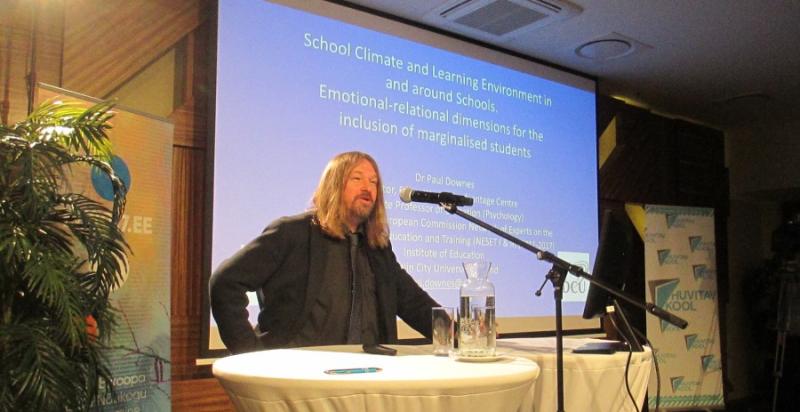
Paul Downes also gave an invited presentation to the National Advisory Council for the Irish Department of Children and Youth Affairs’ Better Outcomes Brighter Futures National Strategy on 22nd November. His presentation was entitled, Better Outcomes Brighter Futures and the National Education Welfare Service: The Strategic Drift regarding Poverty and Social Inclusion, including Emotional Counselling Supports. The other invited presentation to the National Advisory Council was by Noel Kelly, Director of the National Education Welfare Services.
VISITING TEACHERS AND SCHOOL PSYCHOLOGISTS FROM MALTA
During the week of November 20-24, DCU's AntiBullying Centre and Educational Disadvantage Centre collaborated to host a group of visiting teachers and psychologists from Malta and to arrange visits for them to a number of schools. The group visited DEIS schools, St. Ultan's Ballyfermot, Francis St. Primary School Dublin 8, Virgin Mary Boy's School Ballymun, as well as St. Patrick's primary school on the DCU St. Patrick's Campus.
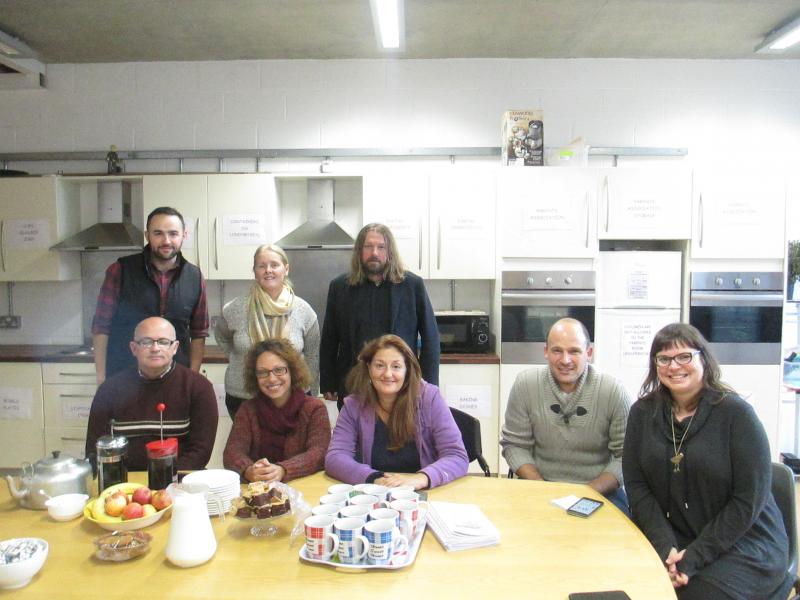
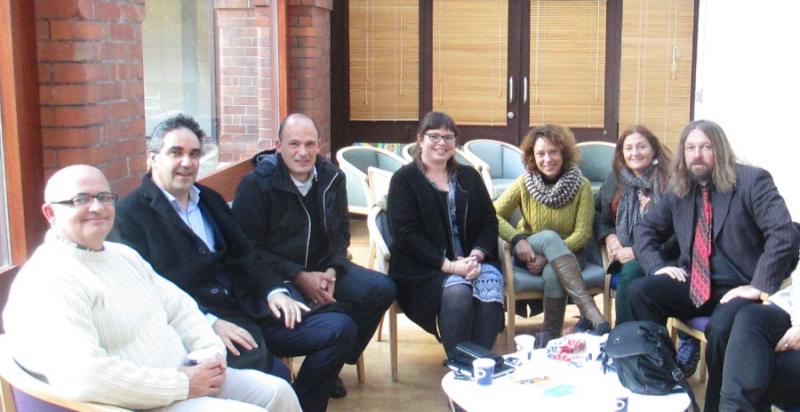
The purpose of the visit was to explore innovative practices in Ireland with regard to school bullying and violence prevention, and to examine holistic solutions, including for children in schools of high poverty and socio-economic exclusion.
EDUCATIONAL DISADVANTAGE CENTRE AND IRISH PRISON SERVICE: 2 PHD RESEARCH FELLOWSHIPS
KEYNOTE PRESENTATION AT THE CNESCO (CONSEIL NATIONAL D’ÉVALUATION DU SYSTÈME SCOLAIRE) AND CIEP SORBONNE UNIVERSITY MEMBER CONFERENCE, PARIS
Dr Paul Downes, Associate Professor of Education (Psychology) in the School of Human Development and Director of DCU’s Educational Disadvantage Centre gave a keynote presentation at the CNESCO (Conseil national d’évaluation du système scolaire) CIEP Sorbonne Universities’ Conference on Early School Leaving Prevention, Paris on November 9th 2017.
Dr Downes’ presentation, Early school leaving: taking a holistic, differentiated and systemic international perspective on the issue, can be accessed here. It builds on his recent reports published by the European Commission in the areas of inclusive systems in and around schools, school bullying and violence, and multidisciplinary teams in and around schools. Developing Dr. Downes’ conceptual framework on system blockage and inclusive systems, these reports highlight the importance of emotional-relational dimensions to early school leaving, previously overlooked by earlier OECD reports.
CIEP is an institution of the French Ministry of National Education and member of Sorbonne University http://www.ciep.fr/en/role-status-mandate. Its missions, which are part of the government’s international cooperation priorities, include cooperation in the areas of education, professional training and the quality of higher education. CNESCO offers independent evaluation for the French Education Ministry and is funded by the French Education Ministry.
Access Dr Downes' presentation here
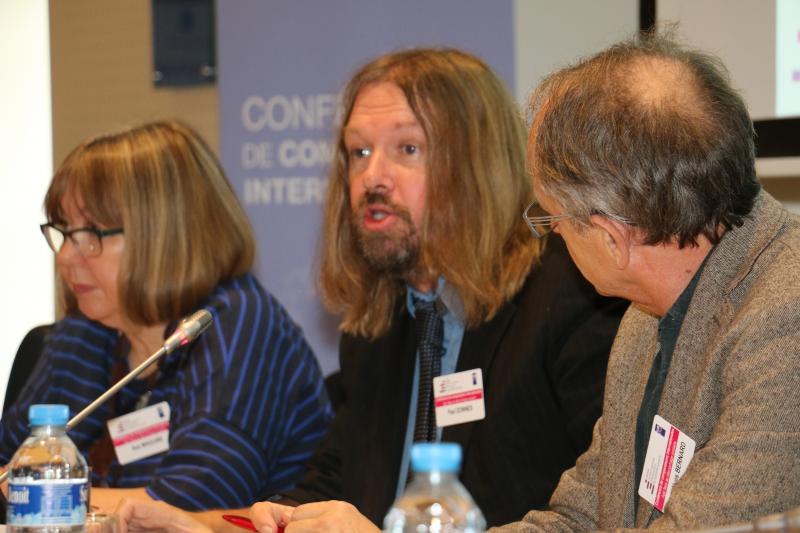
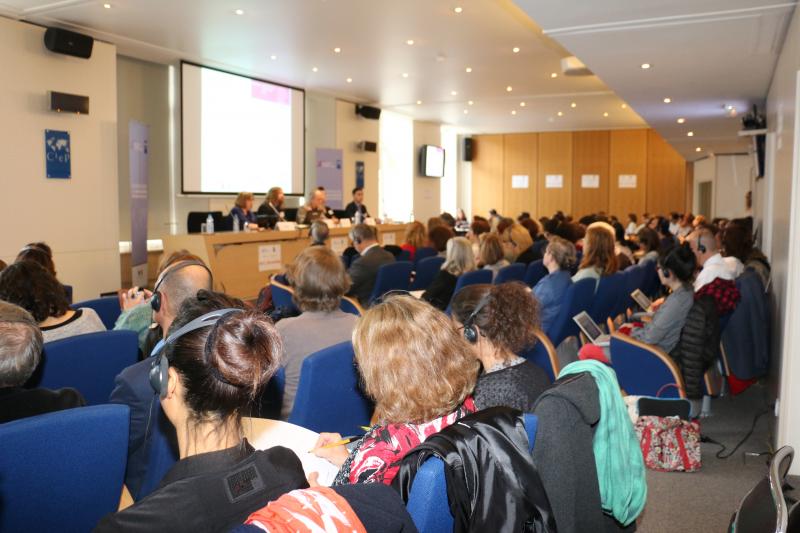
Photographs copyright © CIEP - Service du Dévelopement et de la Communication.
MINISTER ZAPPONE, EUROPEAN COMMISSION AND CEDEFOP JOIN DCU EDUCATIONAL DISADVANTAGE CENTRE TO LAUNCH REPORT ON INCLUSIVE SYSTEMS IN AND AROUND SCHOOLS, Wednesday September 20th 2017
View the podcast of the launch HERE
Dr Katherine Zappone, Minister for Children and Youth Affairs, joined Dublin City University last night to launch a DCU-led report published by the European Commission on the development of a new tool to analyse the inclusiveness of education systems.
International research indicates that school systems need to change in order to tackle early school leaving and improve social inclusion in education and society. However, policy-makers and school actors require practical tools to assist them in this process.
Led by Dr Paul Downes, Director of the Educational Disadvantage Centre, Institute of Education at Dublin City University, this report develops such practical tools by translating international research findings, as well as EU policy and legal documents, into user-friendly proposals to guide strategic reform of policy and practice. It offers a reconceptualization of systemic approaches to supports setting out key fundamental principles for inclusive systems.
DCU President, Professor Brian MacCraith welcomed the launch attendees and Dr Anne Looney, Executive Dean, Institute of Education, DCU introduced each of the speakers.
Key speakers, Petra Goran, European Commission, Irene Psifidou, Cedefop and Professor Erna Nairz-Wirth, Vienna spoke about how promoting inclusive systems can help address major issues of societal importance in the education system, including early school leaving prevention, mental health supports for vulnerable students, school bullying and violence prevention, and a positive learning environment to foster student learning and leadership.
Irene Psifidou also presented on another structural indicators tool focusing specifically on early leaving from vocational education and training, a tool developed by Paul Downes and published by Cedefop.
Minister Zappone welcomed the report and commended the team involved in putting it together, adding that it reinforced the idea that schools can’t achieve this by themselves and that we all have such a key role to play. She committed to exploring ways to disseminate and implement aspects of the report, in Irish and wider contexts.
Dr Paul Downes, Associate Professor of Education (Psychology) and Director of the Educational Disadvantage Centre, DCU, put this report in context for Ireland:
“Child poverty in Ireland increased at the fastest rate in the EU between 2008 and 2011, with Latvia, Bulgaria and Hungary our nearest rivals for this unwanted title. In Ireland it has continued to increase every year until 2015. In other words, children and young people have borne the brunt of the economic crisis. We now need an overarching and not piecemeal response to child poverty at a national level, centrally including improved provision of services”.
Two key services emphasised in the report Structural Indicators for Inclusive Systems in and around School are multidisciplinary teams in and around schools and community based lifelong learning centres:
“We need to combine these services into community based one-stop-shops to end service fragmentation and to provide young people and their parents with continuity and flexibility of tailored supports, including drop-in services rather than merely a few pre-packaged programmes.
We need a national strategy for community based integrated centres, combining lifelong learning and multidisciplinary team supports, and linked with schools. Multidisciplinary teams linked with schools are a hallmark of good practice in a European context and taken for granted as a service provision in many EU countries – but not Ireland.”
Downes, P., Nairz-Wirth, E., Rusinaite, V. (2017). Structural Indicators for Developing Inclusive Systems in and around Schools in Europe. Luxembourg: Publications Office of the European Union/EU bookshop, can be accessed HERE
FAILINGS FORCE OUR PUPILS FROM SCHOOL: EU REPORT
Irish Daily Mail, September 21st 2017
Irish children are pulling out of school early because they don’t get the support they should , according to the author of a new E U-backed report on education needs, writes Sarah Slater. READ MORE
SCHOOLS ‘MUST PLAY A BIGGER ROLE IN TACKLING HUNGER, INADEQUATE SLEEP’
Irish Examiner, September 21st 2017
Issues such as tackling inadequate sleep and hunger need to play a bigger role in how Irish schools combat disadvantage, according to the author of a European Commission report, writes Niall Murray. READ MORE
CEDEFOP SELF-REFLECTION TOOL FOR POLICY MAKERS TO TACKLE EARLY LEAVING FROM VET - Access Self-Reflection Tool here
The toolkit was developed by Paul Downes, Dublin City University under Cedefop’s framework contract 2013-FWC25/AO/ECVL/IPS-ARANl/EarlyLeaving/OO5/13 and the responsibility of Irene Psifidou, Cedefop expert at the Department for learning and employability, headed by Antonio Ranieri.
STRUCTURAL INDICATORS BASED SELF-REFLECTION TOOL FOR POLICY MAKERS TO TACKLE EARLY LEAVING FROM VET - Access PowerPoint Presentation here
Dr. Irene Psifidou, Expert Learning and employability, CEDEFOP
Educational Disadvantage Centre, DCU, 20th September 2017
ROUNDTABLE ON A 'ONE STOP SHOP' COMBINING COMMUNITY BASED MULTIDISCIPLINARY TEAMS WITH COMMUNITY LIFELONG LEARNING CENTRES - Access PowerPoint Presentation here
Dr. Irene Psifidou, Expert Learning and employability, CEDEFOP
Educational Disadvantage Centre, DCU, 20th September 2017
ROUNDTABLE ON A 'ONE STOP SHOP' COMBINING COMMUNITY BASED MULTIDISCIPLINARY TEAMS WITH COMMUNITY LIFELONG LEARNING CENTRES - Access PowerPoint Presentaion here
Dr Paul Downes, Director, Educational Disadvantage Centre, DCU
Dr Siobhán O’Reilly, Executive Director, Familibase, Ballyfermot
Fiona Kearney, Familibase Services and Programme Coordinator, Ballyfermot
Educational Disadvantage Centre, DCU, 20th September 2017
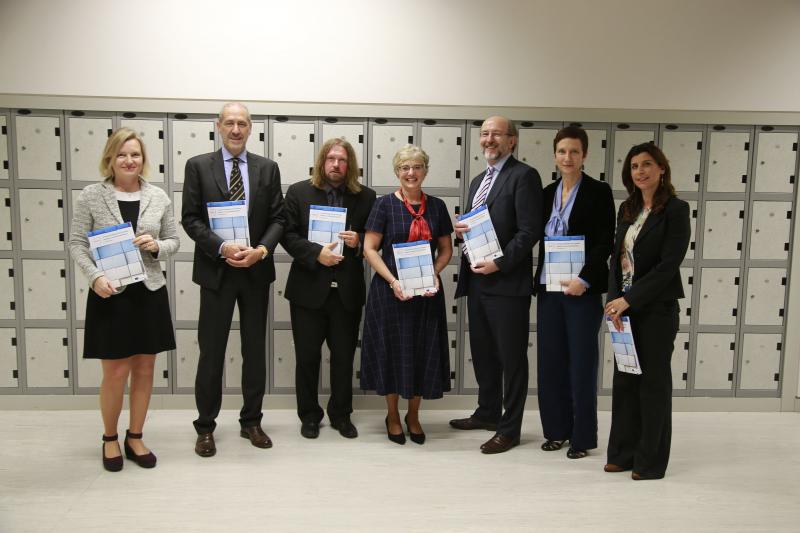
Professor Erna Nairz-Wirth,Head of Educational Sciences Group; Claudio Masotti, Vice President European Parents' Association; Dr Paul Downes, Director EDC; Dr Katherine Zappone, Minister for Children and Youth Affairs; Professor Brian MacCraith, President DCU; Petra Goran, European Commission; Dr Irene Psifidou,Cedefop
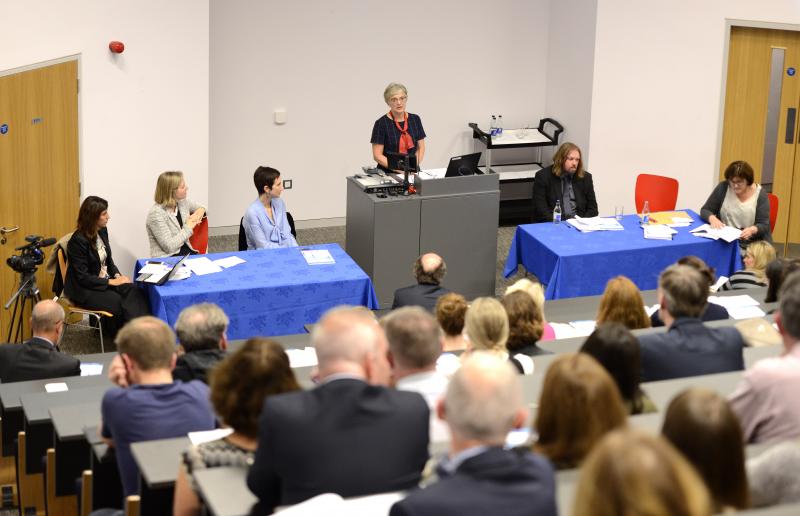
Minister Katherine Zappone
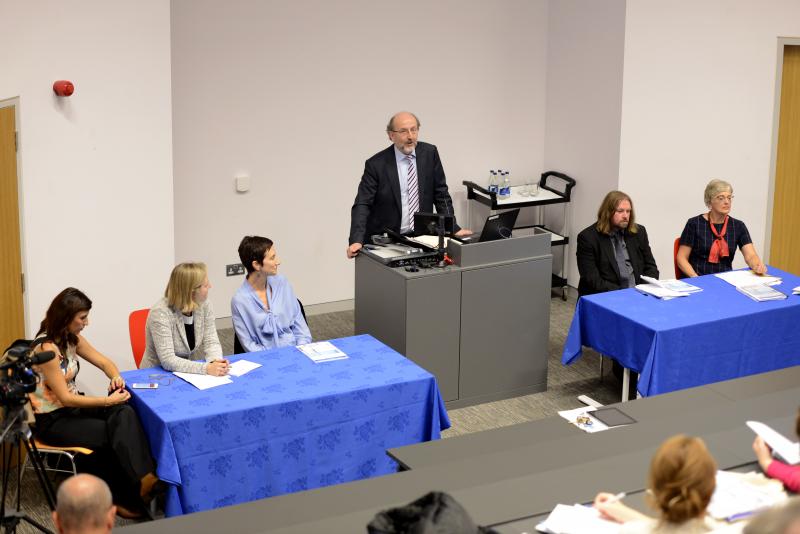
Professor Brian MacCraith, President DCU
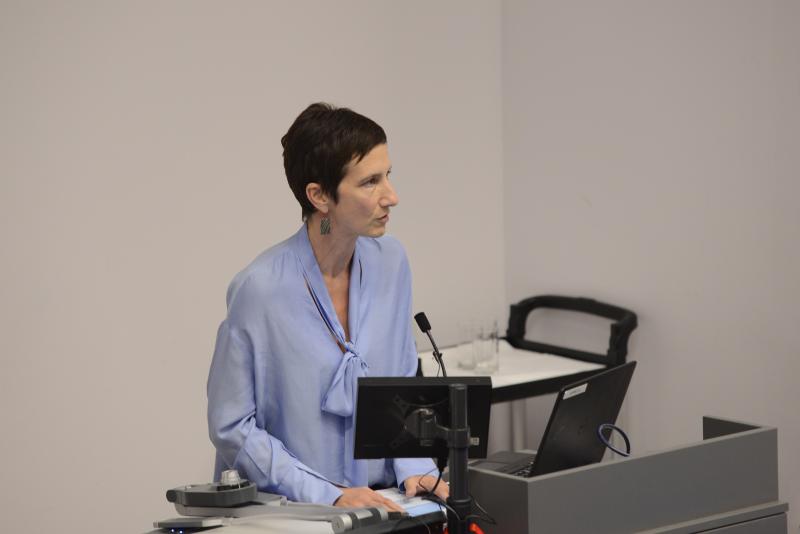
Petra Goran, European Commission
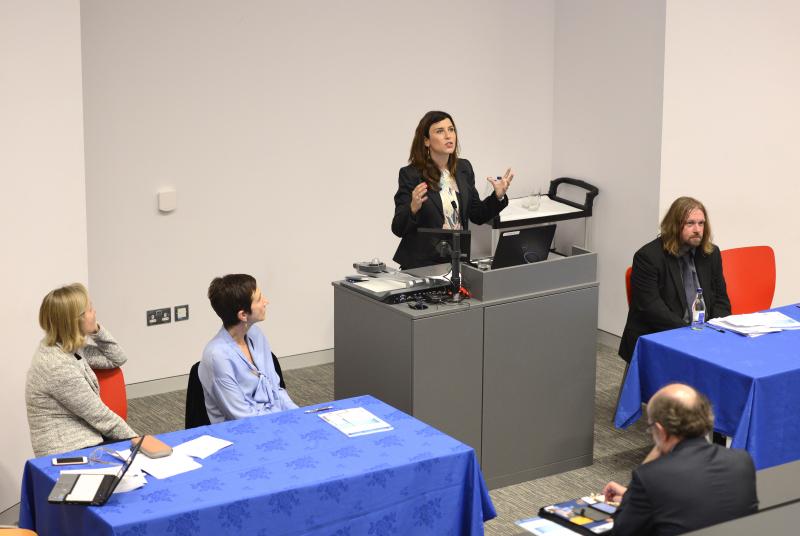
Dr Irene Psifidou,Cedefop
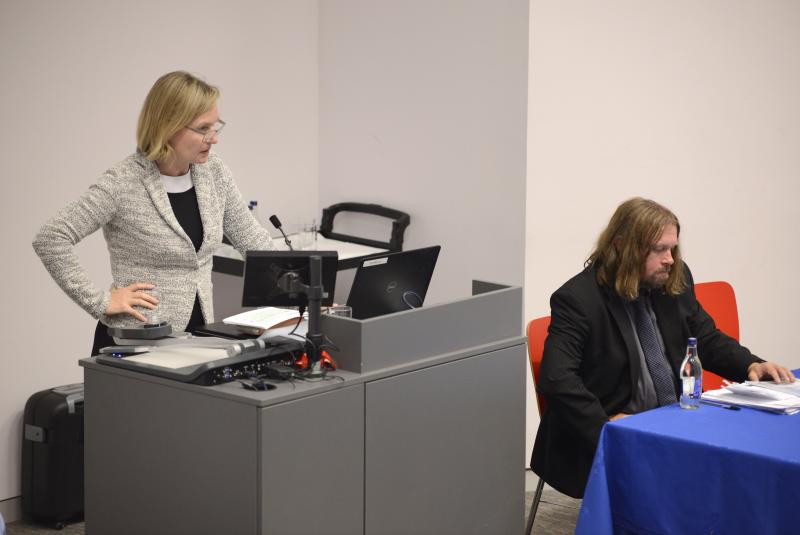
Professor Erna Nairz-Wirth,Head of Educational Sciences Group, Vienna University of Economics and Business
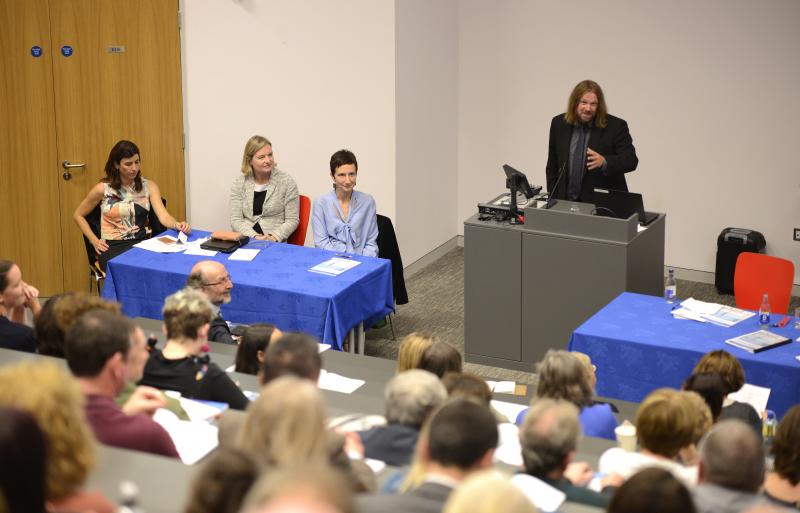
Dr Paul Downes, Director Educational Disadvantage Centre,DCU
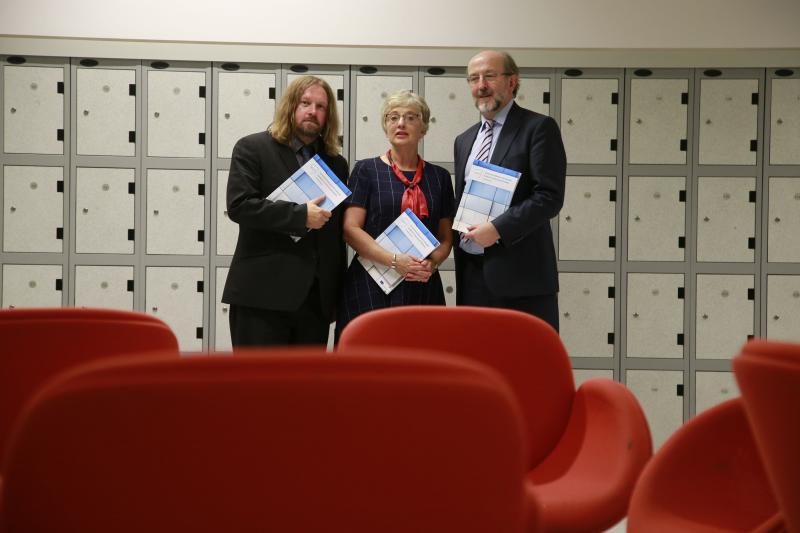
Dr Paul Downes; Minister Katherine Zappone; Professor Brian MacCraith
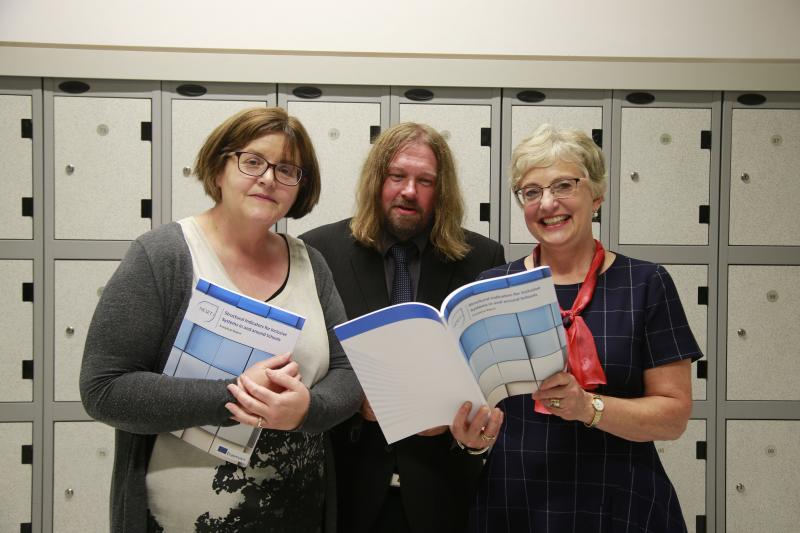
Dr Anne Looney, Executive Dean, Institute of Education, DCU; Dr Paul Downes, Minister Katherine Zappone
PROGRAMME
Welcome – Professor Brian MacCraith, President, DCU
Launch by Petra Goran, European Commission, Directorate General for Education and Culture and Minister Katherine Zappone, Minister for Children and Youth Affairs of the report, Structural Indicators for Inclusive Systems in and around Schools (2017). Downes, P., Nairz-Wirth, E. & Rusinaite, V. Luxembourg: Publications Office of the European Union
SPEAKERS:
Petra Goran, European Commission, Directorate General for Education and Culture
Minister Katherine Zappone, Minister for Children and Youth Affairs
Irene Psifidou, Cedefop, Presentation on the new Structural Indicators Self-Reflection Toolkit for Preventing Early Leaving from Vocational Education and Training led by Paul Downes
Dr Paul Downes, Director, Educational Disadvantage Centre, Associate Professor of Education (Psychology), DCU
Professor Erna Nairz-Wirth, Vienna
EDUCATIONAL DISADVANTAGE CENTRE ROUNDTABLE ON A 'ONE STOP SHOP' COMBINING COMMUNITY BASED MULTIDISCIPLINARY TEAMS WITH COMMUNITY LIFELONG LEARNING CENTRES
On September 20th, 2017, the Educational Disadvantage hosted a Roundtable in Belvedere House, Institute of Education, St. Patrick’s Campus, DCU to discuss the theme of a 'One Stop Shop' Combining Community Based Multidisciplinary Teams with Community Lifelong Learning Centres. Two basic questions were explored:
1. Is there a need to develop models of community based ‘One stop shops' that combine community based multidisciplinary teams with community based lifelong learning centres ?
2. Can we develop an Irish national strategy for these and an EU led strategy ?
The group was welcomed by Dr Anne Looney, Dean of Education, DCU Institute of Education. Dr Paul Downes, Director, DCU Educational Disadvantage Centre, outlined the two basic questions and an initial rationale for the discussion. Presentations were then given by Petra Goran, European Commission, on the European Policy Context for these issues, by Irene Psifidou, Cedefop on the Response of Cedefop to Community Outreach One Stop Shops and by Dr Siobhan O'Reilly, Executive Director, Familibase, Ballyfermot, Key Advantages of Community Based Multidisciplinary Teams
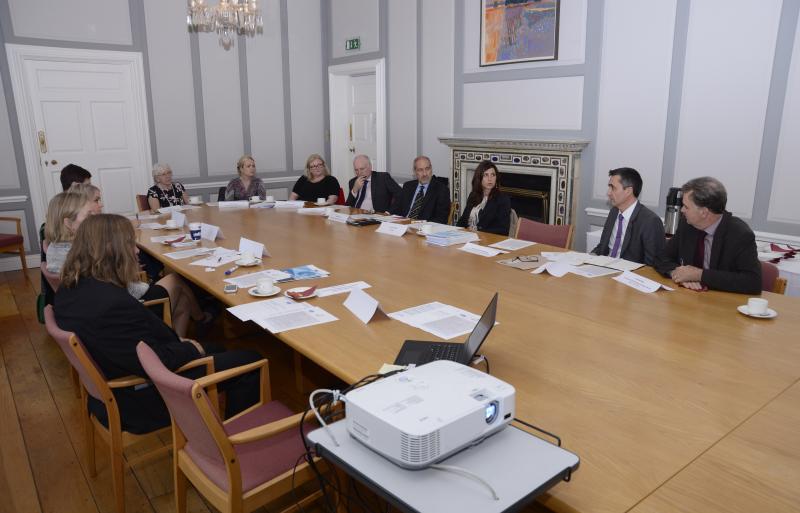
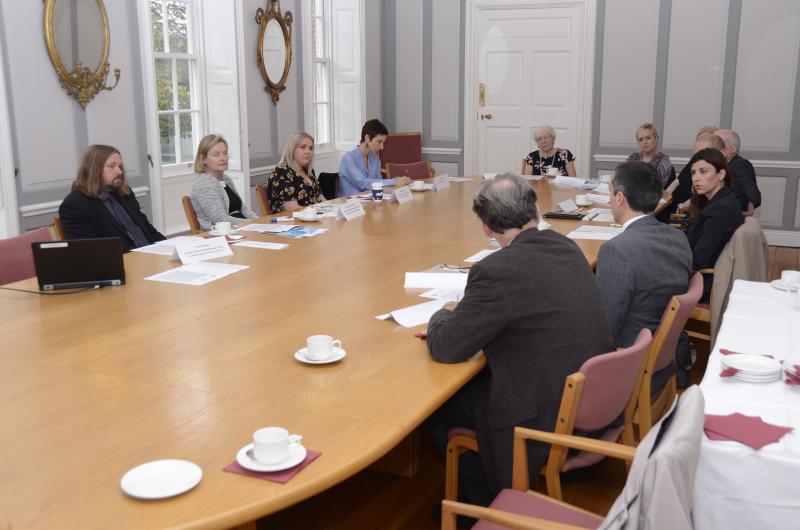
The Roundtable was attended by Minister Katherine Zappone, as well as by Claudio Masotti, Vice President, European Parents’ Association, Noel Kelly, Director, National Educational Welfare Services, Liz Waters, President, Aontas, The National Adult Learning Organisation, Professor Erna Nairz-Wirth, Head of Educational Sciences Group, Vienna University of Economics and Business, Paul Rogers, CEO Northside Area Partnership, Fiona Kearney, Familibase Services and Programme Coordinator, Ballyfermot, Dr Siobhan O'Reilly, Executive Director, Familibase, Ballyfermot, Sarah Murphy, Evaluator, Grangegorman Area Based Childhood Programme, Pat Courtney, Principal, St. Vincent’s BNS, Dublin 1 and Jennifer Plunkett, Principal, St. Benedict’s and St. Mary’s, Kilbarrack.
THE CLASSROOM DIVIDE
RTE Monday September 18th 2017
In The Classroom Divide, Joe Duffy examines Ireland's education system 50 years on from the introduction of free secondary school education asking if Ireland’s educational system is leaving those on the margins trailing behind? A major contributor to the programme was Anne Looney, Executive Dean,Institute of Education, DCU.
LOCAL AREA PARTNERSHIP SUBMISSIONS TO DCU STRATEGIC PLAN
The Northside Area Partnership and Dublin North West Area Partnerships developed a combined submission for DCU's strategic plan. The Educational Disadvantage Centre facilitated early discussions on this submission. Their joint submission can be accessed HERE
COORDINATOR REQUIRED FOR NEWLY ESTABLISHED COMMUNITY LIFELONG LEARNING HUBS
The Educational Disadvantage Centre was part of DCU Institute of Education's successful bid for project funding from the Irish Higher Education Authority (HEA) to increase access to the teaching profession for underrepresented groups. The HEA awarded the Centre approximately 120,000 euro in total over a 3 year period to establish lifelong learning outreach hubs in Darndale and Kilbarrack, Dublin.
This community lifelong learning hubs project is being managed in conjunction with Northside Area Partnership, as part of a newly established Darndale-Coolock-Kilbarrack Taskforce convened by the Educational Disadvantage Centre.
DEATH OF DR ANN LOUISE GILLIGAN, FOUNDING DIRECTOR OF THE EDUCATIONAL DISADVANTAGE CENTRE
The Educational Disadvantage Centre wishes to acknowledge the very sad news of the passing of our beloved former colleague and friend Ann Louise Gilligan, dynamic champion of equality and marriage equality, and the founding Director of our Educational Disadvantage Centre. She will be deeply missed. Our thoughts at this time are with her wife Katherine, her family, friends and all whose life she touched. Paul Downes gave one of the funeral eulogies. Access this here
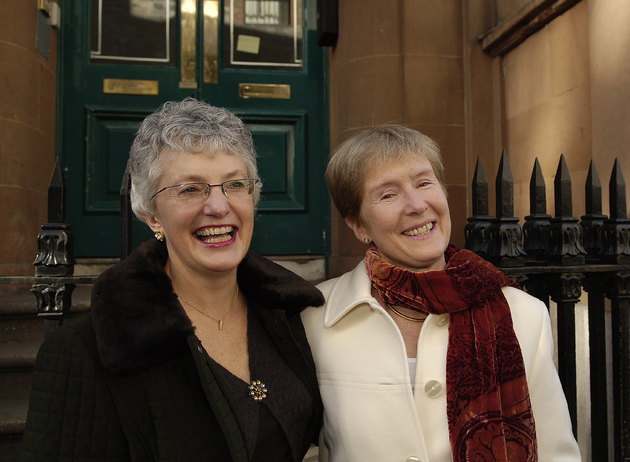
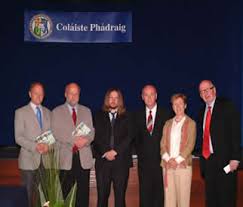


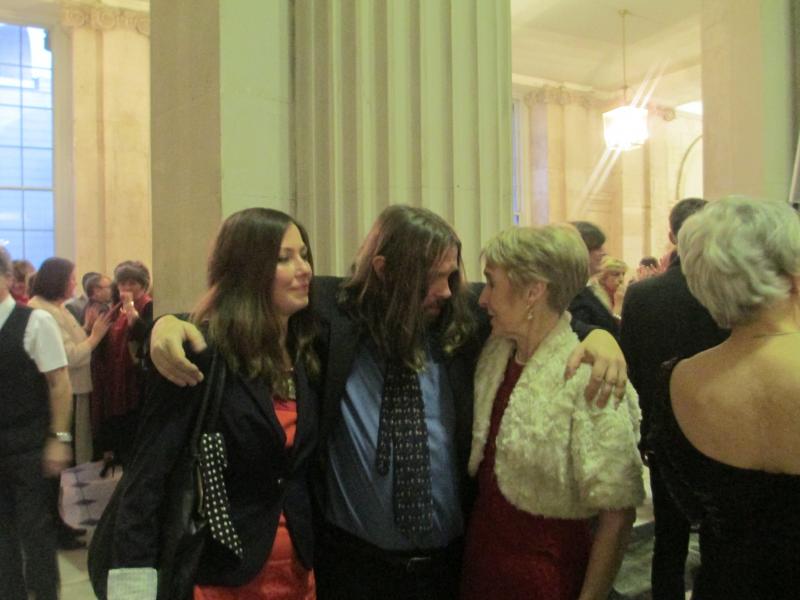
'The real Jobstown: An Cosán' Independent.ie
‘Gentle radical who fought for a more just Irish society’ Irish times
'Ann Louise Gilligan's contribution lives on'. Irish Independent
'Tributes paid to Dr Ann Louise Gilligan, wife of Minister Katherine Zappone'. Echo.ie
ICCL statement on the death of Dr Ann Louise Gilligan
Una Mullally: In praise of Ann Louise Gilligan Irish Times
IFUT statement on the death of Dr Ann Louise Gilligan
Ann Louise Gilligan "was always thinking of fairness, of love" Irish Times
PAUL DOWNES HAS HAD AN ARTICLE PUBLISHED ON THE EUROPEAN COMMISSION'S EPALE (ELECTRONIC PLATFORM FOR ADULT LEARNING IN EUROPE) BLOG
CHILD INDICATORS RESEARCH ARTICLE PUBLISHED
Paul Downes has had an article published in Child Indicators Research, a journal which presents measurements and indicators of children's well-being and their usage within multiple domains and in diverse cultures. The article entitled An Emerging Paradigm of Structural Indicators to Examine System Supports for Children’s and Adolescents’ Education and Wellbeing can be accessed here
HENS HELP TO CRACK LIFE'S CODE: NEWSPAPER ARTICLE
Ciara Gilligan's M.Ed thesis for her special option, Poverty and Social Inclusion, with the Educational Disadvantage Centre, is featured in the Irish Independent (June 28, 2017).
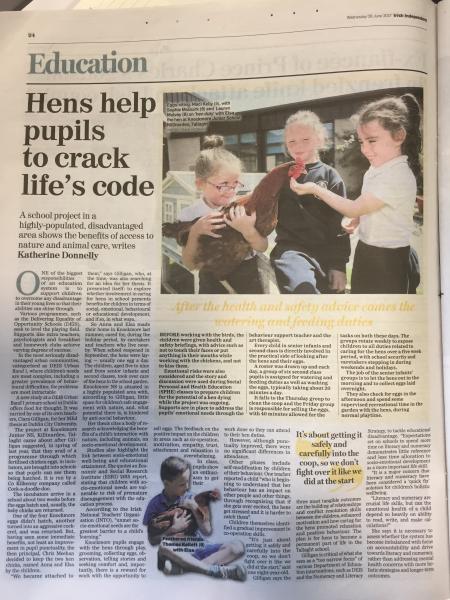
This project at Knockmore Junior National School, Killinarden, Tallaght involves children taking care of hens in a DEIS primary school setting. Ciara Gilligan's thesis, supervised by Dr. Paul Downes, explores the impacts of taking care of hens in school on children's social and emotional development, in particular, on their empathy, relaxation, responsibility, learning and cooperation skills.
NEW ARTICLES PUBLISHED ON CONCEPTUAL FOUNDATIONS OF INCLUSIVE SYSTEMS AND THE UN RIGHT TO THE HIGHEST ATTAINABLE STANDARD OF HEALTH
RECENT EUROPEAN COMMISSION DOCUMENT CITES SEVERAL DCU EDUCATIONAL DISADVANTAGE CENTRE REPORTS
The recent European Commission Staff Working Document accompanying its Communication on school development and excellent teaching for a great start in life cites a range of reports authored by Dr Paul Downes, Director of the Educational Disadvantage Centre, Institute of Education, DCU.
These reports are on the various themes of inclusive systems in and around schools, parental involvement for early school leaving prevention, school bullying and violence prevention impacting on early school leaving, as well as on multidisciplinary teams in and around schools.
The Commission's document can be accessed here: http://eur-lex.europa.eu/legal-content/EN/TXT/PDF/?uri=CELEX:52017SC016…;
INVITED PRESENTATION TO BUSINESS IN THE COMMUNITY IRELAND
Dr Paul Downes gave an invited presentation entitled Key strategic and motivational considerations for working with socio-economically excluded groups to the national team of Business in the Community Ireland on June 20th 2017. ACCESS THE PRESENTATION HERE
DR PAUL DOWNES APPOINTED TO DEPARTMENT OF CHILDREN AND YOUTH AFFAIRS NATIONAL WORKING GROUP
Dr Paul Downes, Director of the Educational Disadvantage Centre, DCU, has been appointed as a member of the recently established Department of Children and Youth Affairs (DCYA) National Working Group on Standards for School Age Childcare to implement the National School Age Childcare Action Plan 2017. The national standards are due to be finalised before the end of 2017.
In 2016, Dr Downes gave an invited presentation to the interdepartmental group for the Department of Children and Youth Affairs and the Department of Education and Skills (DES) to inform many of the key principles of the School Age Childcare Action Plan 2017. The National School Age Childcare Action Plan 2017 is a joint strategy of the DCYA and DES and it has committed €3million to support increased capacity for the provision of school age childcare. The new Capital Scheme will be open to schools, community/ not-for-profit and private services.
The National School Age Childcare Action Plan 2017 is a key strategic commitment long advocated for by the national network Quality Development of Out of School Services (QDOSS). The Educational Disadvantage Centre is a founding member of QDOSS, established in 2006. Dr Paul Downes in 2007 and Dr Catherine Maunsell (School of Human Development, Institute of Education, DCU) in 2011, have both chaired this national network on behalf of the Educational Disadvantage Centre. Paul Downes was the author of the QDOSS national network’s founding document, Quality Development of Out of School Services: An Agenda for Development (2006). The QDOSS national network includes a range of organisations such as Barnardos, Trinity College Dublin Children’s Research Centre, Early Childhood Ireland, Transforming Education through Dialogue (TED) Project, Mary Immaculate College, Limerick, Dublin City Childcare Committee and the National Childhood Network (NCN). The independent chairperson of QDOSS is John Carr, former general secretary of the INTO.
Invited presentation of Dr Downes to the DCYA and DES Interdepartmental Group: School Based Afterschool Services: Key Issues for the Inter-Departmental Group to Consider. ACCESS PRESENTATION HERE
DCYA and DES School Age Childcare Action Plan 2017
EDUCATIONAL DISADVANTAGE CENTRE, DCU, TO COMMENCE NEW STUDY
The Educational Disadvantage Centre has been awarded the tender for a study on the education needs of children experiencing homelessness, led by Grainne McKenna, School of Language Literacy and Early Childhood Education and Dr Ger Scanlon, School of Human Development.
The purpose of the research, commissioned by the Children’s Rights Alliance, is to identify the issues for children and recommend practical solutions to the Department of Education and Skills and the Educational Welfare Services in Tusla (the Child and Family Agency) that will make a real difference for children.
Key policy-makers and legislators will have a greater awareness and understanding of education needs for children experiencing homelessness.
This is a potentially very significant initial study as there is a major research and policy gap at national level regarding the educational impact of homelessness and temporary accommodation.
The Children’s Rights Alliance will disseminate and promote the study widely to its members, to Government, key statutory players, members of the Oireachtas, the media and beyond.
ARTICLE COMMISSIONED BY THE GLOBAL ACCESS TO POSTSECONDARY EDUCATION NETWORK.
CEDEFOP OFFICIALLY LAUNCH A NEW SELF-REFLECTION TOOL FOR POLICY MAKERS, LED BY DR. PAUL DOWNES
At Cedefop’s international conference, Policy Learning Forum: VET (Vocational Education and Training) as a solution to leaving education early (Thessaloniki, May 16-17, 2017), Cedefop officially launched its Europe-wide VET toolkit for tackling early leaving. This included its Self-reflection tool for policy makers based on structural indicators, developed by Dr. Paul Downes, Director of the Educational Disadvantage Centre, Institute of Education, DCU. Dr Downes was also a member of the expert advisory group to Cedefop for the whole VET toolkit.
Cedefop is one of the EU’s decentralised agencies, it supports development of European Vocational Education and Training (VET) policies and contributes to their implementation. The agency facilitates cooperation between the European Commission, EU Member States and the social partners in this area.
At the plenary session, Cedefop evaluation tools and frameworks for policy impact analysis, Paul Downes gave an invited presentation, Self-reflection tool for policy makers based on structural indicators to identify the strengths and weaknesses of policies put in place. During the subsequent workshop session, participants were invited to use the self-reflection structural indicators tool.
In response to the presentations, the subsequent plenary panel discussion, Creating and strengthening a culture of education policy evaluation in Europe (and beyond), took place. Cristian Aedo, The World Bank, Stefanie Ledermaier, Eurofound, Mary Kyriazopoulou, European agency for special needs and inclusive education and Jari Matti Riiheläinen, Eurydice were the participants.
James Calleja, Cedefop Director, closed the conference with a presentation, Cedefop vision: VET as a solution to leaving education early.
Dr Downes’ presentation can be accessed here
The Cedefop toolkits, including the structural indicators self-reflection tool for policy makers, can be accessed here:http://www.cedefop.europa.eu/en/publications-and-resources/toolkits/vet-toolkit-upskilling-pathways/about-the-toolkit
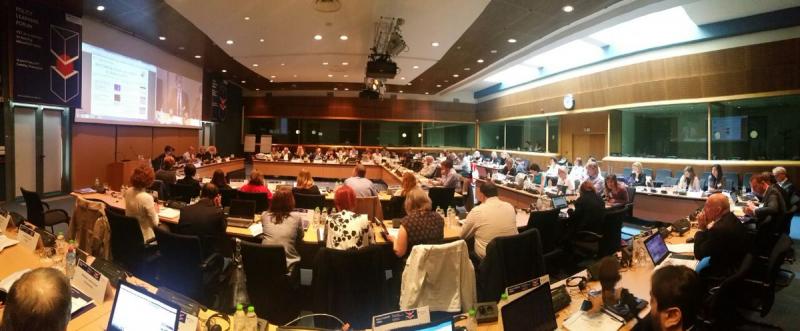
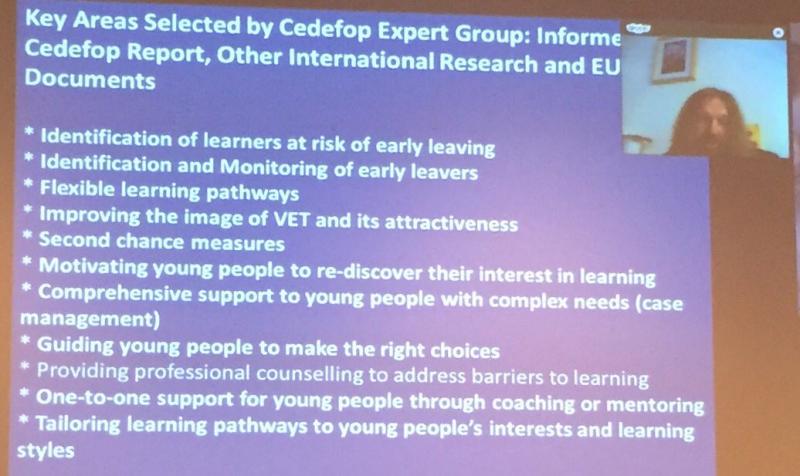
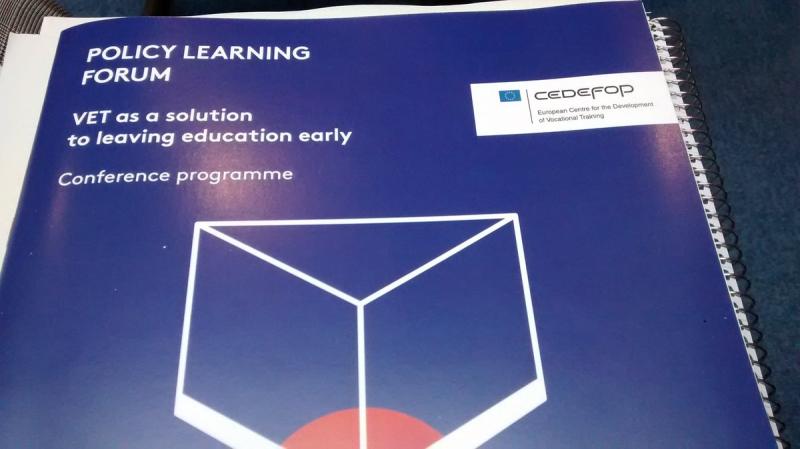
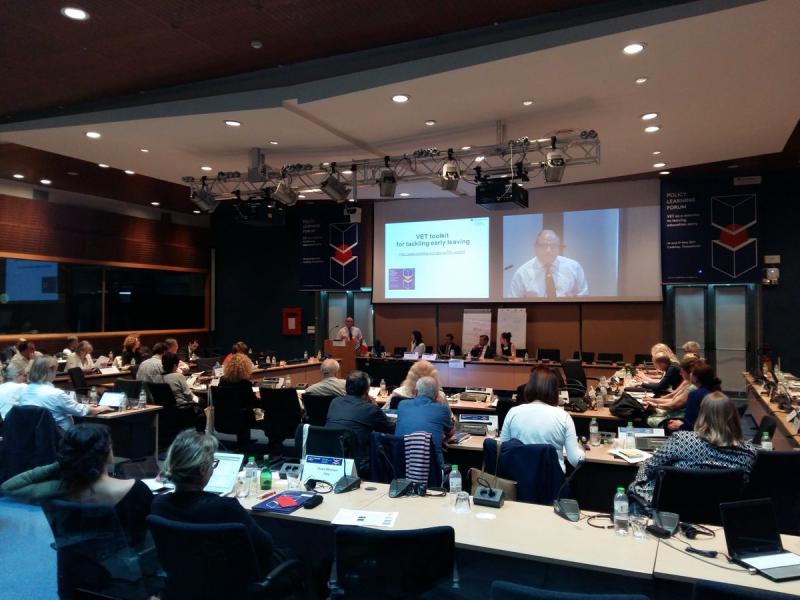
INVITED PRESENTATIONS AT NCCA EXPERT MEETING, DUBLIN CASTLE
Dr Maeve O’Brien and Dr Paul Downes gave invited presentations on transition at the CIDREE (Consortium of Institutions for Development and Research in Education in Europe), expert meeting organised by the NCCA (National Council for Curriculum and Assessment) in Dublin Castle, May 12, 2017.
Dr O’Brien’s presentation was entitled, Facing the Challenges of Inequality and Social Disadvantage at Transfer.
Dr Downes’ presentation was Addressing Common Misconceptions about Transitions: Towards a Differentiated Systemic Approach
Dr Mary O’Kane, DIT, also gave a presentation on transitions from early years settings to primary school.
Each invited speaker set out a key question for consideration in detail by participants in the subsequent session.
Access Dr Downes' presentation here
NEW REPORT ON STRUCTURAL INDICATORS FOR INCLUSIVE SYSTEMS PUBLISHED BY THE EUROPEAN COMMISSION
The European Commission has recently published Downes, P., Nairz-Wirth, E., Rusinaite, V. (2017). Structural Indicators for Developing Inclusive Systems in and around Schools in Europe. Luxembourg: Publications Office of the European Union. COMMISSION ANNOUNCEMENT HERE ACCESS THE PUBLICATION HERE
The structural indicators’ tool developed in the report has been strongly welcomed by the European Parents’ Association. READ MORE SEE ALSO
BALLYMUN REGIONAL YOUTH RESOURCE'S INITIATIVE OF LUNCHTIME TALKS
The Educational Disadvantage Centre in the Institute of Education has supported Ballymun Regional Youth Resource's initiative of lunchtime talks for teachers, social workers, youth workers and other organisations working with young people in north Dublin. This initiative bridges non-formal and formal sectors from primary to third level with 40 people on average attending each session. A number of DCU Institute of Education staff have kindly contributed to lead the following sessions:
General Learning disabilities
Eamonn McCauley, DCU
Wednesday 1st February 2017
Implications of Autism in the teenage years
Tish Balfe, DCU
Tuesday 28th February 2017
Dyslexia
Eamonn McCauley, DCU
Tuesday 21st March 2017
Dyspraxia
Máirín Wilson, DCU
Tuesday 25th Ap
SEBD
David McKeon, DCU
Tuesday 23rd May 2017
INVITED PRESENTATION ON NEW DEIS ACTION PLAN
Dr Paul Downes gave an invited presentation on the new DEIS Action Plan for Social Inclusion in Schools, to the INTO Districts 14 & 15 for North Dublin, at the Regency Hotel on March 8th. His presentation was entitled New DEIS Strategy: Strengths, weaknesses, issues for further consideration. ACCESS THE PRESENTATION HERE
GLOBAL ACCESS TO POST-SECONDARY EDUCATION (GAPS) INITIATIVE
The Global Access to Post-Secondary Education (GAPS) Initiative invited Paul Downes to submit the following on WHY GAPS? READ MORE
INTERNATIONAL KEYNOTE PRESENTATION ON TRANSITIONS IN EDUCATION
On 16th February, 2017, Dr. Paul Downes, Director of DCU’s Educational Disadvantage Centre gave the keynote presentation at the Directorate General of Education of the Portuguese Ministry of Education & European Commission Working Group on Schools International Meeting TEIP 2017 “Continuity and Transitions in Learner Development”. His presentation, Addressing Continuity and Transitions in a Holistic, Multidimensional Way: Overcoming System Mismatch, Blockages in Communication and Fragmentation was to over 400 teachers and school principals from the Priority Zone Schools for areas of high poverty across Portugal, as well as for officials from Education Ministries across Europe. ACCESS PRESENTATION HERE
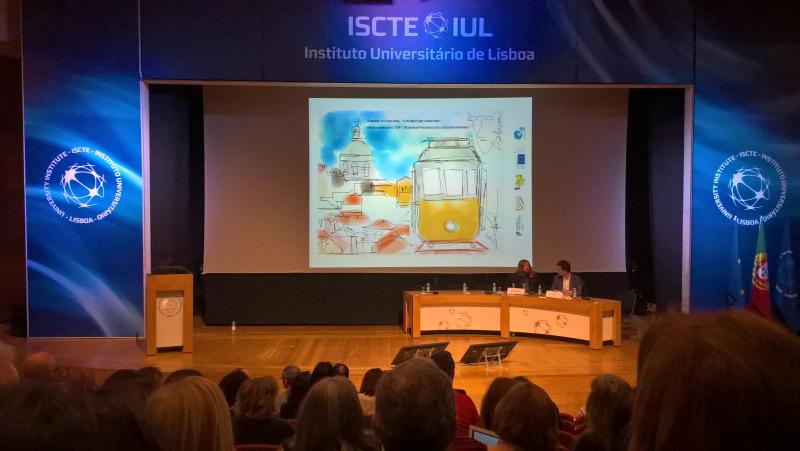
INVITED PRESENTATION TO INTO EQUALITY COMMITTEE
Dr Paul Downes gave an invited presentation, Socio-economic discrimination in schools: International and Irish issues, to the INTO Equality Committee in the INTO offices, Parnell Square on January 27th, 2017. ACCESS PRESENTATION HERE




